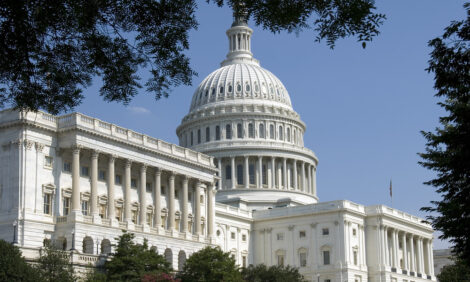



Poultry Experts Share Top Tips as Avian Flu Rules Drive Birds Indoors
UK – All poultry must move indoors, UK bird keepers were told on Wednesday, as a precaution against a virulent strain of avian influenza that has been spreading through Europe in the past few weeks. But poultry keepers seem largely positive about this preventative measure, as The Poultry Site’s Editor, Alice Mitchell, reports.The Chief Veterinary Officers of England, Scotland and Wales declared avian flu prevention zones following outbreaks of a highly pathogenic avian influenza strain, called H5N8, which has been killing both poultry and wild birds in countries such as France, Germany and the Netherlands, among others.
The zones mean that all poultry and captive birds must be kept indoors. If that is not possible, such as for geese or game birds, farmers and smallholders have to take steps to ensure wild birds are kept away from them. Such steps include ensuring wild birds can’t access feed and water from farmed birds.
Experienced poultry hobbyist and commercial farmer Mike Colley said the measures show the authorities are very concerned about the spread of disease on the continent. “Avian influenza could lead to the devastation of our industry which is actually very large – close to a billion chickens will be kept over the course of a year in Britain,” he said.
He added: “Making efforts to keep your flock away from wild birds and paying particular attention to hygiene makes very good sense and although it will be a pain and potentially costly it will help keep the wolf from the door.”
Chris Rumming, of Lydiard Turkeys near Swindon, farms a high-welfare, free range flock of bronze turkeys. He agrees that the new rules are a good thing, to help free range producers prepare for such disease threats.
“Perhaps it’s a good thing that we’re having this kind of scare without actually any outbreaks, to make people think about it,” he said. “It sharpens the mind a bit.”
Keeping birds healthy and entertained
Large numbers of commercial poultry are kept indoors all year round anyway, but how will birds that are used to being out and about every day cope?
Chris Rumming says his birds do not seem to be badly affected by this change in routine. Their shed is large, and whilst their outside roaming is much more restricted, they are able to use a smaller covered area that wild birds can’t access. Chris has also given the birds lots of extra straw bales in the shed to keep them entertained.
Chris pointed out the timing of the order has been very fortunate for turkey farmers, as he starts slaughtering his turkeys for the festive season today, and many larger commercial turkey producers will be finished by now.
“The people who are most affected are those with large laying hen flocks, especially those ones that aren’t beak tipped,” he said. Poultry often have their beak tips removed to prevent them pecking each other, an activity that could increase if they are stressed. Chris does not use this procedure for his flock, but worries he may have to if another housing order is given in future, especially if it was to happen earlier in the year when the turkeys are younger and more aggressive.
Mike Colley listed a number of factors that backyard flock owners should consider to help keep their poultry healthy whilst kept indoors, highlighting ventilation in particular. “Remember housing should be airy but not draughty, as well as clean - look out for the sting of ammonia from rotting droppings - with fresh straw or wood shavings to regularly bed down and perching areas free from the dreaded red mite.
“Keep that water flowing and if you want eggs stick a light in the housing with a timer set for 16 hours,” he added. “Making housing more comfortable for daytime habitation will make you and your birds feel better.”
Looking to the future
This is thought to be the first order of its kind issued by the British authorities, but Chris is already thinking about how he and other farmers might have to adapt if this becomes a more regular occurrence.
“We’re actually thinking about redesigning our paddocks next year,” he said. “This order might affect how we redevelop and redesign our run for the future.”
Chris is thinking of designing the smallest paddock so it can be easily netted to ensure his birds can be outside, but separate from wild birds. “I imagine quite a lot of other poultry producers will be thinking the same – if they’ve got free range birds that need to go outside for welfare reasons, they could have a netted, secure area as a sort of halfway house.” Chris explained that ideas like this could prevent welfare problems whilst still maintaining good biosecurity. However, he will be taking advice on the best methods to ensure adequate protection from avian flu.
Mike Colley encourages poultry keepers to think positively about the restrictions: “Winter can be a stressful time for chickens in particular – remember their ancestors were more used to the hot sun of the tropics rather than our finger-numbing north winds. So a few weeks out of the damp and chilly winter weather might just cheer them up.”
Further Reading
You can visit the avian flu page by clicking here, or click here to visit the Lydiard Turkeys website.









